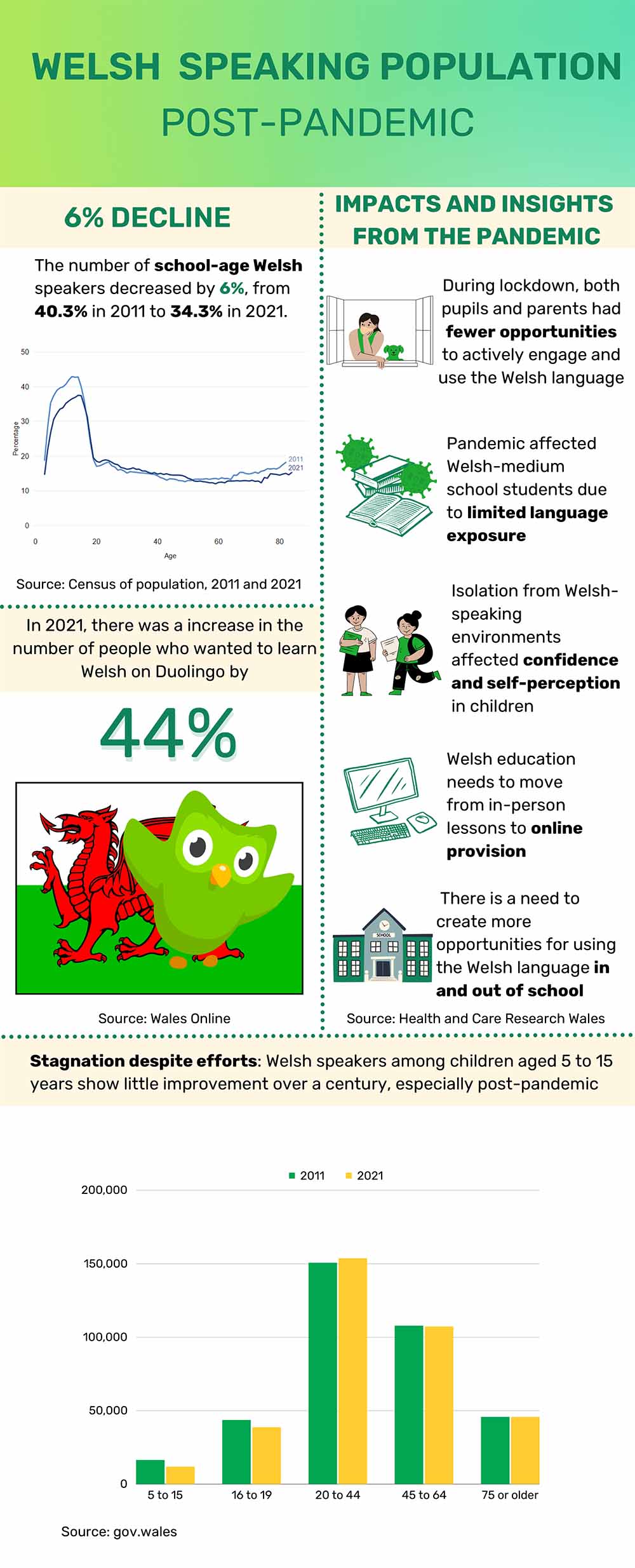During the pandemic, online Welsh learning spiked. Looking back, how has this method progressed since then?
What did you pick up during the pandemic? Some people picked up knitting, others couldn’t stop baking. Here in Cardiff, people were learning Welsh online!
Welsh learning groups in Cardiff have found innovative ways to continue learning the language post-pandemic. There has been an increase in the number of people learning Welsh through digital methods following the pandemic, according to the Welsh Language Society (WLS).
“Keeping up with the internet boom, Welsh learners are shifting towards online means to learn a language that is centuries old,” said Owain Meirion, Political Communications Officer at the Welsh Language Society.
Welsh was the fastest growing language being learnt in the UK on the language learning app Duolingo in 2020. The app witnessed an increase in Welsh language learners by 44 percent on their platform.
Due to a combined community effort, there has also been an increase in Welsh-language learning support groups online, giving more opportunities to learn Welsh than ever before.
“A lot of people learn through exposure with people who are Welsh, who are learning the language themselves,” said Ievan, a paralegal and Welsh learner from Cardiff.
The focus of the groups can range from different areas, including parent learning groups, Welsh cultural groups, and Welsh student support groups.
Another initiative that has been organised by the Welsh Government is the annual Eisteddfod festival, which invites families to celebrate the Welsh language, culture and history.
This is in line with the Welsh Government initiative “Cymraeg 2050”– a government strategy to achieve a million Welsh speakers by the year 2050.
And that government support had a significant impact for people like Neil Harris, a Welsh language learner. “I became hugely conscious during the pandemic of the advantages as someone born and bred in England, of living in Wales, and the care with which the Welsh government supported Welsh people through the pandemic,” said Harris.
The Welsh Government recognises the impact that digital learning methods have had on the Welsh-speaking population. Representatives from the WLS believe that up to £9 million should be spent on establishing and maintaining a Welsh language digital initiative, according to a report released by the Senedd.
Social media platforms using interactive videos and learning methods have also boosted Welsh learning online, says Bethan Ruth Roberts, who is a representative for the WLS. “The influence of platforms like YouTube has a huge impact on language usage among young people because, very often, there is no free-of-charge content produced through the medium of Welsh,” said Roberts.
Isolation from Welsh-speaking environments during the pandemic had affected the confidence of Welsh-speaking parents and children. The introduction to digital learning spaces allowed learners to have a sense of community online versus in-person.
“We lost a lot of connections during COVID, and we weren’t able to converse with each other like we were before. It drove people to learn the language and connect with people online,” said Ievan.
The pandemic, while forcing people indoors gave Welsh language learning online a necessary boost.
“It made me realise that it is morally necessary as part of my identity to start learning Welsh as a sign of respect to Welsh people” said Harris.


